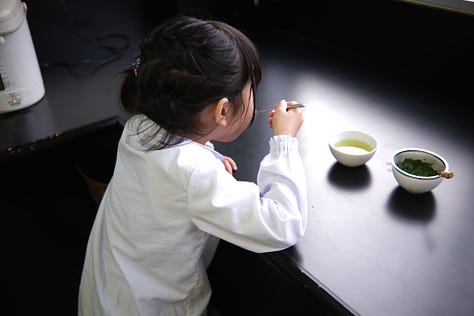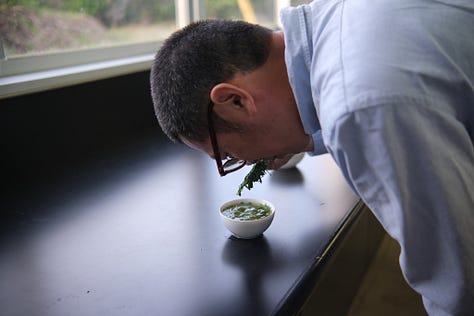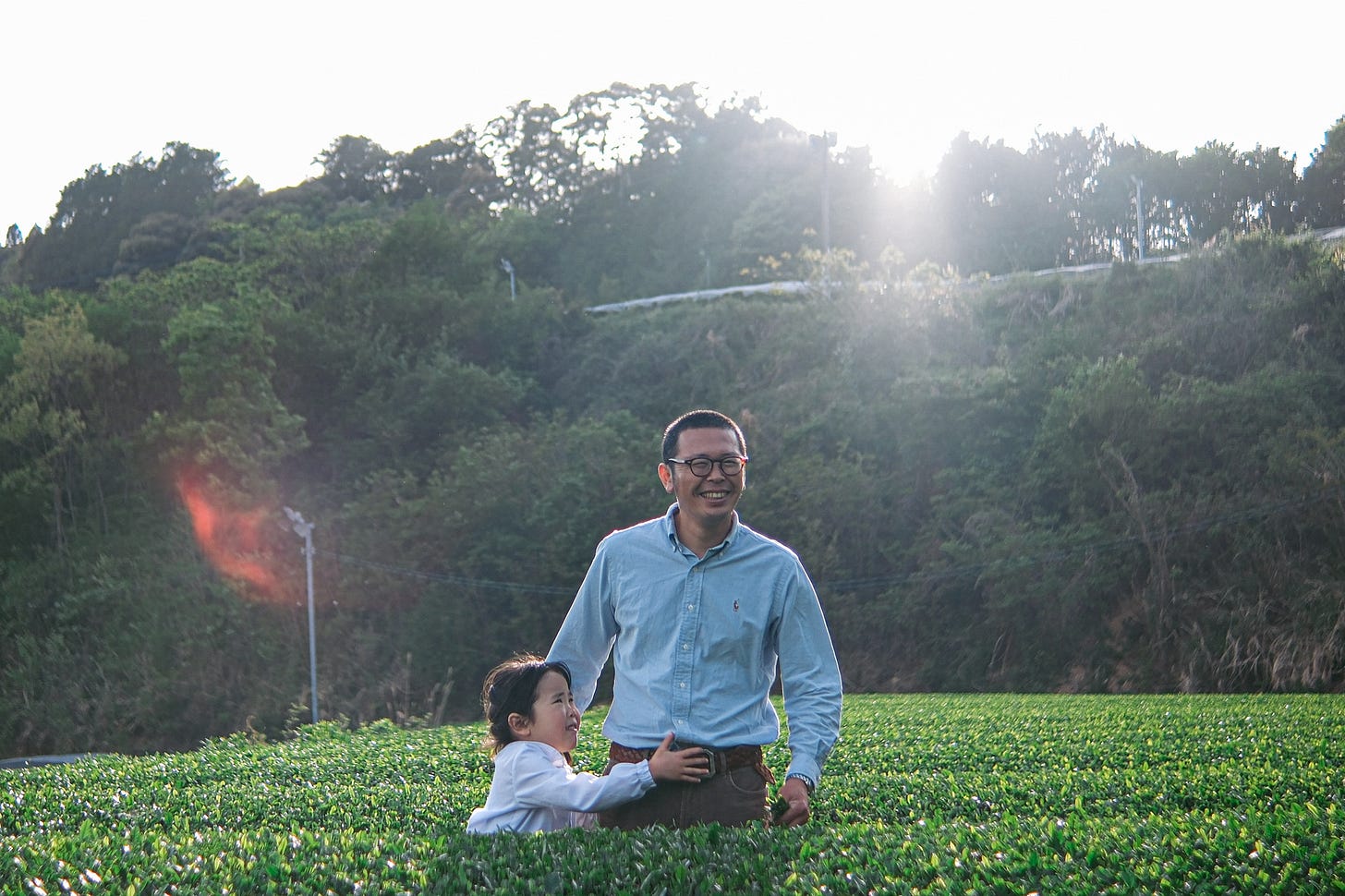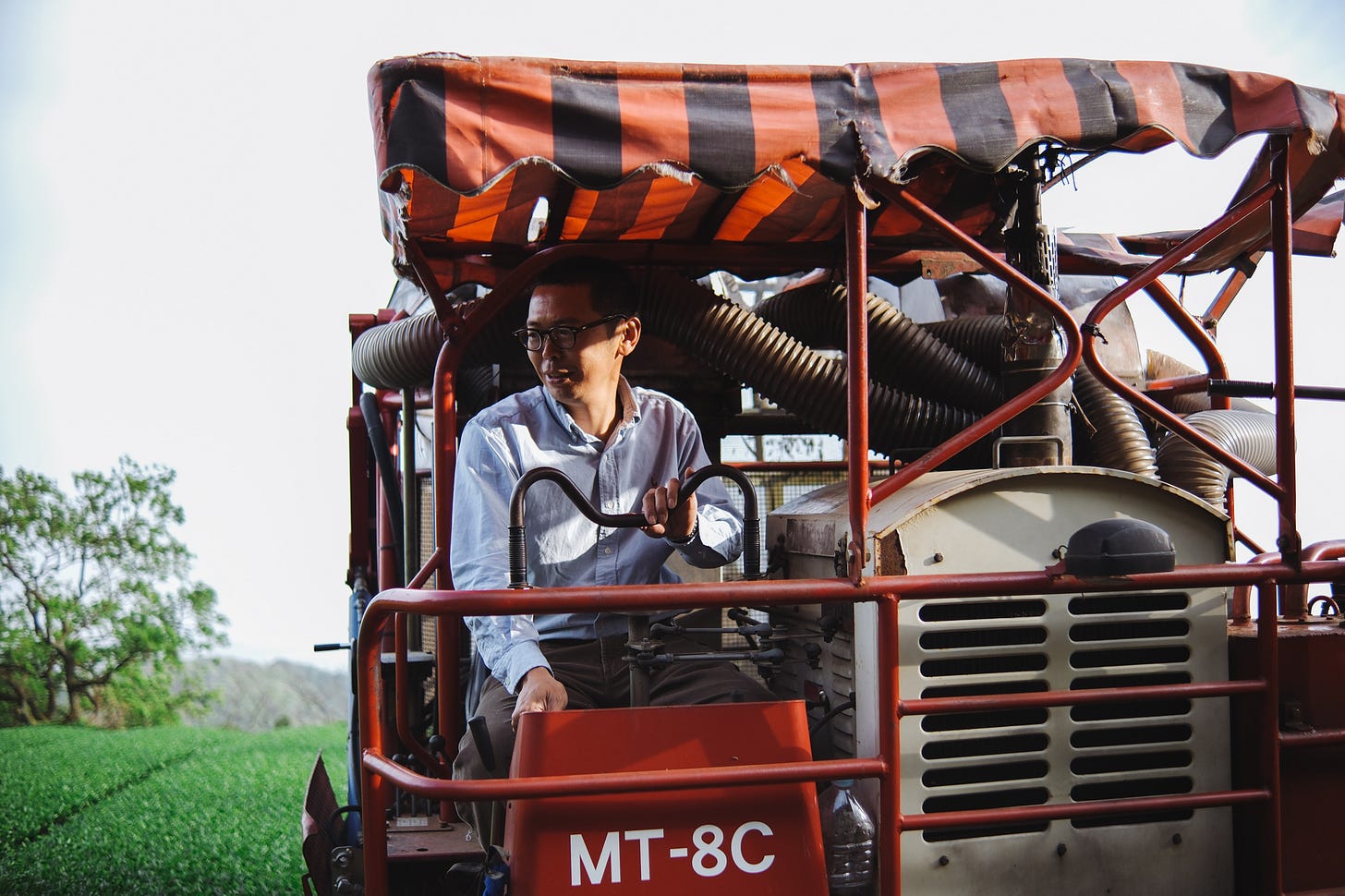(Masahiro Kuma and his daughter in his fields in Joymachi, Fukuoka.)
A reoccurring experience here in Japan has been the reminder of just how much family plays a role in the farming, processing and selling of tea leaves. While it is true that most tea companies continue their legacy by passing the reigns to the eldest son of the family, tea is also about the kids. Wife. Grandmother and grandfather. An uncle or two. Cousins. Everyone comes to support during the harvest and it is really family that makes up for the large and glaring lack of professional help within the tea industry. Without family, the precious work needed to grow, harvest, produce and sell the tea just cannot be completed.
While producing tea is a serious business filled with strenuous and demanding work, there is no one that makes it feel as effortless as Masahiro Kuma. But there is something else about Kuma - some presence you just can’t put your finger on.
You may know Kuma san from my book Stories of Japanese Tea: the Regions, the Growers, and the Craft as the winner of 2017’s #1 Gyokuro and an expert in the field of shaded green tea - but Kuma san also employs his special brand of know-how to craft incredible Sencha, black tea, and Tencha (the pre-milled form of Matcha). His methodology for producing tea is comprised serious soil science chops, a more-than-keen understanding of the intricacies of the land he works on, and this intangible combination of humility, confidence and openness. He works with no agro chemicals or commercial pesticides since his farm is situated in the mountains of Joyo-Machi in Fukuoka and benefits from a near constant blustery breeze. His fields receive a perfect combination of strong morning light (this means warmer mornings with less chance of frost) and cool, but not cold nights which help to slow growth and concentrate sweetness. Kuma san thinks of the his tea should reflect the place from which they came - not just Japan, Yame or even Joyo-machi. But the exact mountainside where the roots of his tea bushes have taken hold.
Masahiro is a farmer. His fields and instruction in how to rear them comes from his father - a seminal figure in the Fukuoka tea world and a true gentleman. I had the pleasure of meeting him when I took part in the 2015 Zenkoku no Umai Gyokuro Irikata Contest - a nationwide Gyokuro brewing competition (yes, they have those in Japan). Kuma san’s approach today has been informed by his dad, but in many ways he has branched out into his own way of looking at things. While the pride and prestige of focusing only on Gyokuro (especially after winning the top prize) would make sense, his love of Sencha means he arguably spends more of his time each year focusing on that. And you’d think with his Gyokuro so supremely rich in Umami his Sencha might skew that way as well - well, I find his Sencha to be incredibly fragrant and sweet without being heavy handed or overtly savory. He has a strong intent on the flavors reflecting the cultivar - and in many ways, the overcharged umami of so many teas in Japan reflect less the cultivar than they do the amount of fertilizer in the soil. And when he makes black tea (of which he has amassed awards as well) he chose Benihikari as the cultivar - a harder to grow and demanding plant - instead of something easier and maybe more profitable.
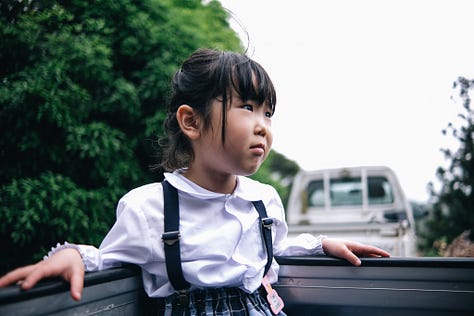


When we visited we were greeted by Kazumi San, Masahiro’s cousin and director of business. While she is based in the Tokyo, she was visiting for harvest. She is famously upbeat and never walks, only trots - her passion for sharing Kuma’s world is evident. She too has a charm that is hard to pin down. Enthusiasm of course, but also sort of a tops-turvy unique charm where the love of tea just sort of flows out of her. She is truly the outgoing foil to Kuma’s soft spoken shyness.
(Kazumi san and Minami in the Gyokuro field)
We toured the Gyokuro field as well as the Sencha fields higher up on the mountain. The evening light there is clear and beautiful. The light is so arresting one can almost forget the amount of back breaking work required to grow tea and even think they too would like to move to Yame and become a farmer. One might think that…and one wouldn’t be wrong. After a sunny hour on the mountain, we were invited to the Joyomachi regional tea factory to see Kuma’s competition Sencha that was picked that morning and made into aracha that afternoon. Many farmers will grow their tea and then take it to a factory to be processed in a shared facility by individuals whose sole responsibility is to manufacture the tea. These folks are masters of the process and Kuma as well as others entrust them with helping to craft their leaves into something special.

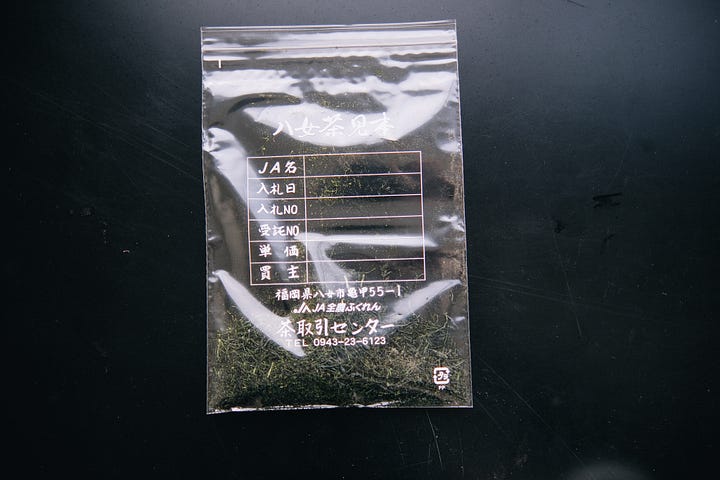

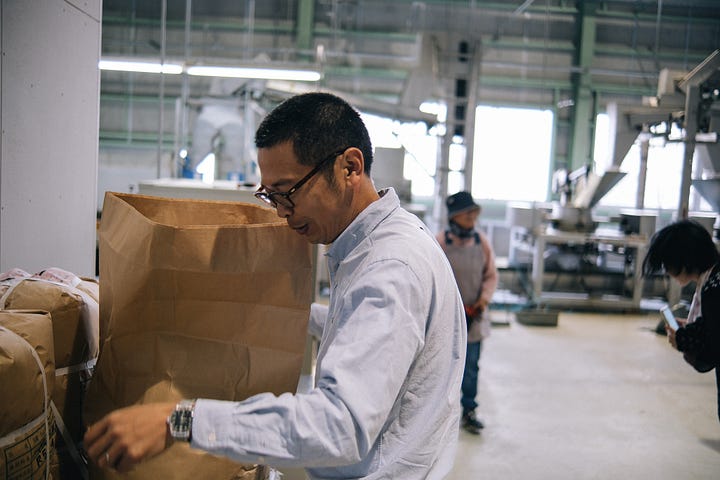
Watching Kuma san open the bag of aracha and see the tea for the first time - and light up a with an uncontrollable smile - was a moment we all will cherish. But perhaps even more impactful was the incredible opportunity to cup the Sencha along with Kuma san as he tasted it for the first time. Having just seen the fields, riding in the truck with his family, and now tasting the years hard work together was something truly unforgettable. A real moment that made Minami and I feel something unique. The feeling that we too were part of the family. It was at that moment that I think I did put my finger on what makes Kuma and his family so special - the way they welcome you in, share their world with you, and make you feel included in it all. The family of tea is big, and we all have a place in it. And his competition tea? Of course, sublime.
